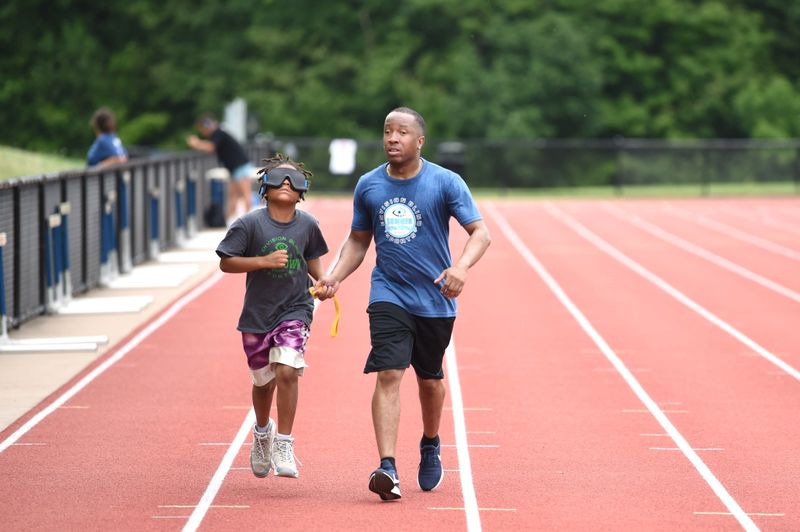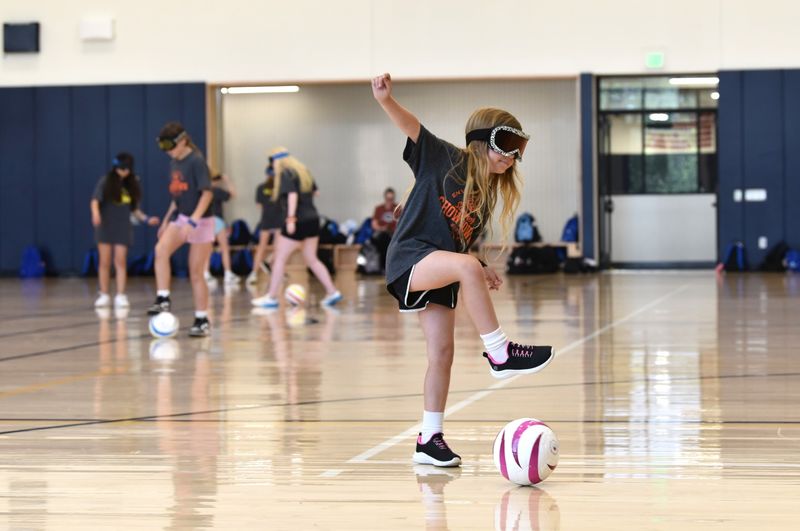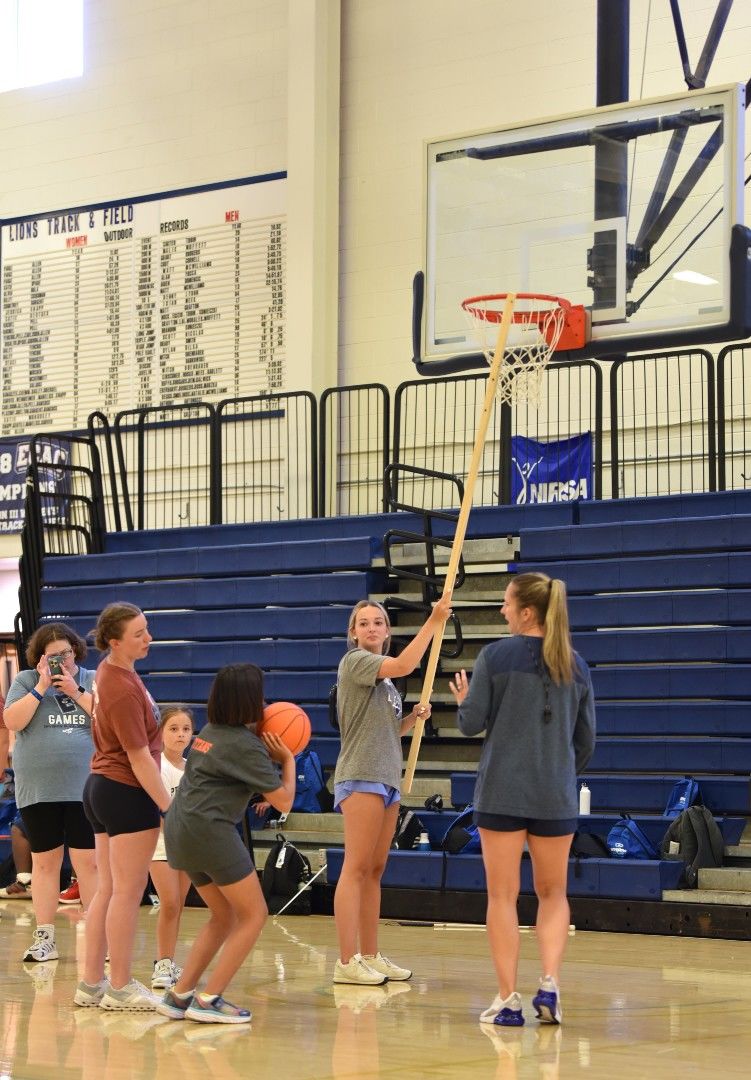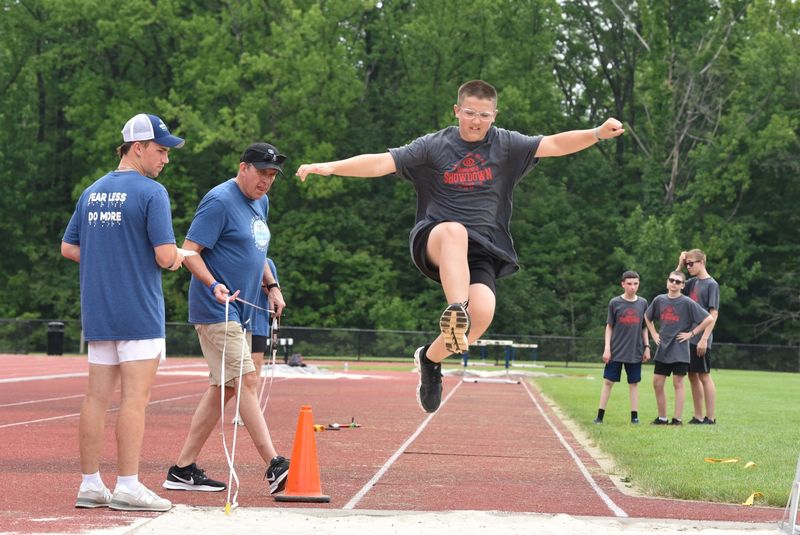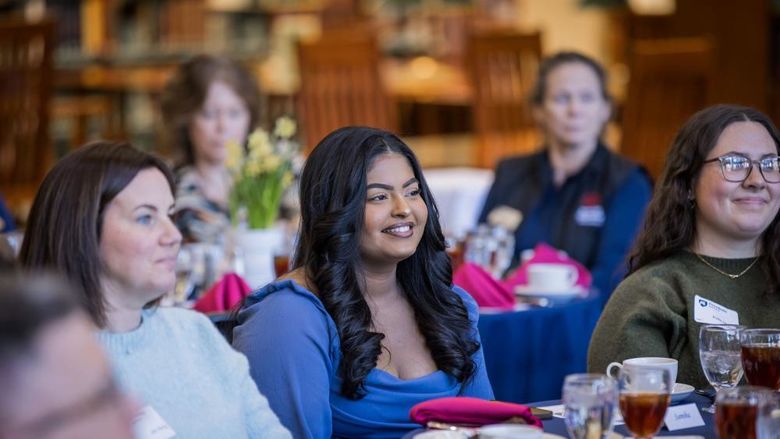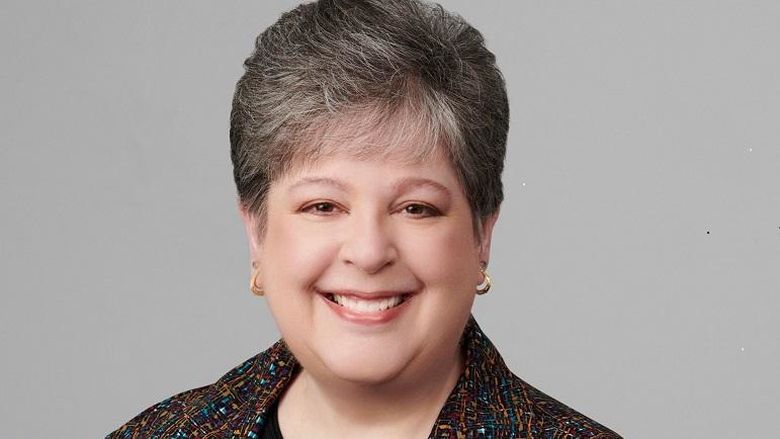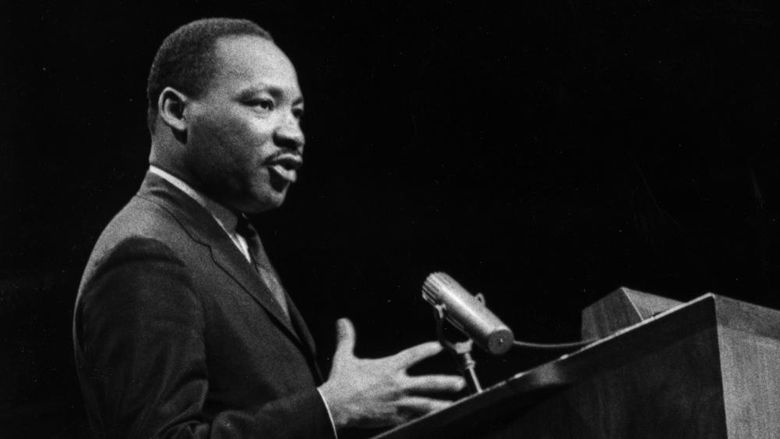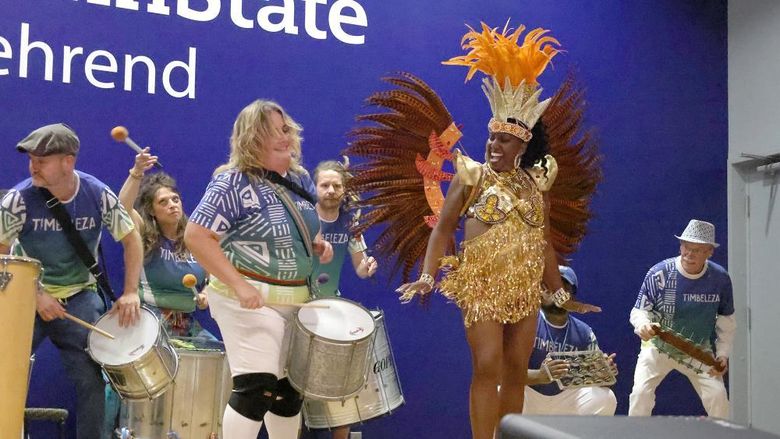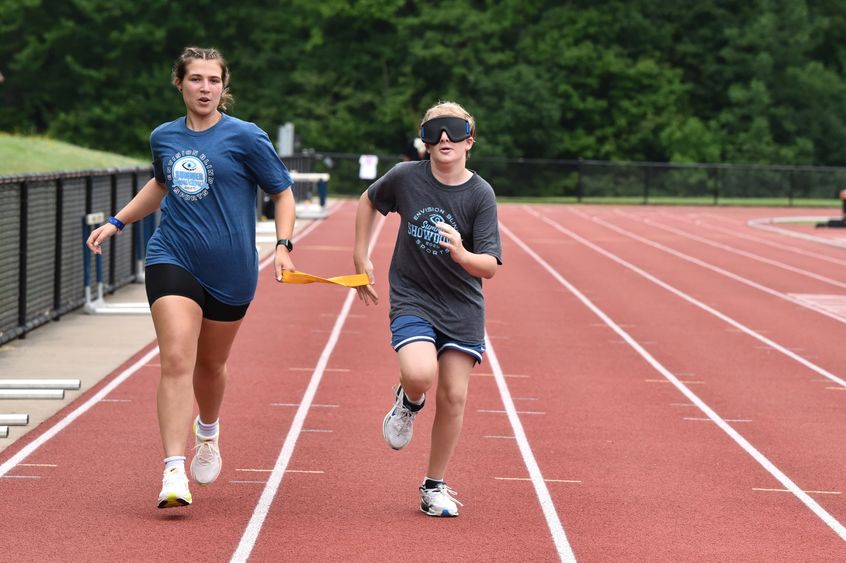
The Envision Blind Sports camp brought 84 vision-impaired athletes to Penn State Behrend this month. Activities included adapted soccer, swimming, basketball, track and field, and a treetop ropes course.
ERIE, Pa. — On the track at Penn State Behrend, running the 100, Wilson Escalante builds an early lead. He rounds the final turn a full four seconds ahead of the next competitor.
It isn’t his stride that makes him different. It’s his confidence. Wilson, 14, can’t see. He has degenerative eye disease. But on the track, in the pool or in the trees at Peek’n Peak Resort, where he monkey-climbed through the ropes course — a highlight of the annual Envision Blind Sports camp — he’s just another boy moving too fast through the summer.
“I enjoy every event,” he said, catching his breath after the run. “I don’t really have a favorite. I just like being with the friends I met here.
“At home, we’re all different,” he said, “but here, we’re like a family.”
That started in 2007, when Wendy Fagan, a former coach of the U.S. women’s national team for goalball — a paralympic sport first developed for veterans who were blinded in World War II — created a camp for vision-impaired youth between the ages of 5 and 18.
The camp moved to Penn State Behrend in 2022. This year, 84 athletes attended, including youth from Indiana, Kentucky and Hawaii.
In addition to the five-day camp, Fagan leads day clinics and competitions. In the summers, the athletes paddleboard and play golf; in the winters, they ski.
“Some of these kids have been sidelined their entire lives,” Fagan said. “We give them an opportunity to just be kids — to run and play and be part of a team. They also learn that they can play sports that they thought were closed off to them.”
Just like any athlete, the Envision campers need the correct equipment. There’s a bell in the soccer ball. Cycling requires a tandem bike, with a counselor on the other pedals. On the basketball court, guides tap the rim of the hoop with a long pole, signaling the direction of the shot.
“You just have to think it through,” said Jillian Stringfellow, the camp director. “For high jump, you count the steps. For track, you need a guide to run with you, and maybe a tether.”
Behind her, a group practices yoga, moving from mountain pose to cat-cow and cobra.
“It’s all about exposure,” Stringfellow said. “These kids can do more than they think they can. You just have to guide them into it. As we do that, we’re teaching them to understand and adapt to their limitations. That way, they can advocate for themselves.”
Back at the track complex, campers try the long jump, plunging heel-first into the sand pit. In the distance, another group throws blunt-tipped javelins.
One of the counselors, Mason Semnisky, prepares his group to move to the next event. He has a red-tipped cane folded into his backpack.
Semnisky has a progressive eye condition. He attended his first Envision camp in 2011.
“It meant everything to me,” he said.
This year, he used vacation time to return as a counselor.
“I would take this over a week at the beach any day,” he said. “You get here, and it’s like one big family reunion. It’s like you never left.”
For him — for anyone, really — the camp isn’t really about competition, he said. Sports are a conduit to something more.
“If you spend even a minute here, and you watch these kids try something, and it works, you can see their self-esteem go through the roof,” he said. “That’s the part that stays with you: When they finish, and they’re grinning at you, and they say, ‘I did that.’”
Robb Frederick
Director of Strategic Communications, Penn State Behrend
